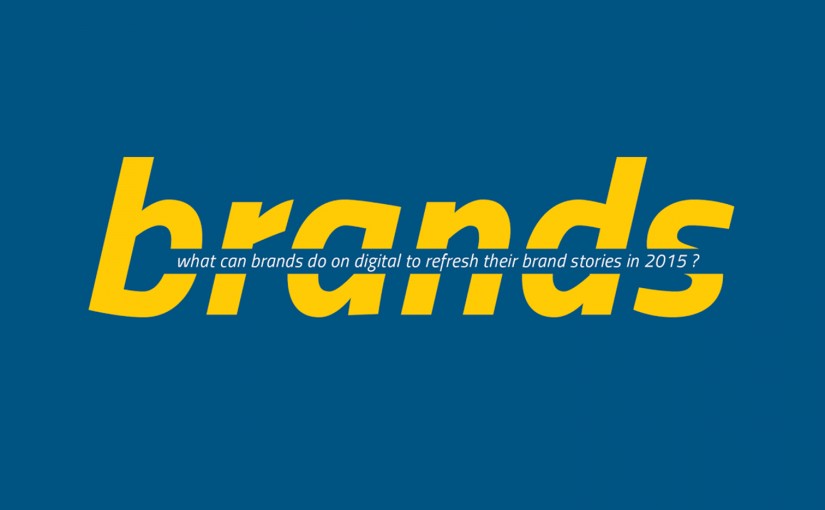Drop us a few lines about the task and we will get back immediately to see we how we can take the discussion forward. Alternately, just pick up the phone and speak with us at +91 9910034330 and we would be happy to help.
- - Do tell us a little about the nature of your business.
- - Be specific about what you’d like us to help you with.
- - Knowing your budget always helps us plan a suitable intervention.
- Blog
Today’s HT piece
-
Today’s HT piece

Today’s HT – Tech 4 U (Delhi Edition) has a piece, written by me, probing if blogging is for you, and if yes, how you could get started. You can also see the piece here: http://epaper.hindustantimes.com/default.aspx (See under HT 2)
Off to Mumbai now, where I have a talk to deliver, but will try and put the text here tomorrow.
UPDATED at 7.37 a.m. IST, 26 May 2007.
Here’s the text as I submitted and is slightly longer than the print edition; the structure too is a bit different . The piece was originally titled You Blog? . If the piece reads different from my other blog post, please remember that it was written with ‘print’ in mind and for a larger, diverse reader group. Do share your inputs and feedback.
Here we go:
Even though this piece appears on the technology page, it has really less to do with technology and more with conversations, though enabled by today’s Internet technology.
By now of course all of us know about blogs – that they are diaries on the web; that they are easy to write and manage; that thanks to thousands of free templates you will never need a designer (only partly correct ? ); that they are the Internet live and ticking; also that they are big and are seemingly here to stay.
Truth also is that, even as a there is a new blog launched every second, majority of them end up dead, soon after launch.
So we won’t delve upon how big the blogosphere is and all that stuff, instead, let’s try and figure out whether indeed YOU need to blog and if yes, how could you ensure that once you have set one up, it doesn’t end up, like perhaps a majority from among the 71 million + that are listed on Technorati.com (www.technorati.com) already are – dead!
The answer to this can be really simple:- What is it that you want to share with the world?
- Why do you want to share it? (Your specific need and what you want to achieve)
The clearer you are about what you want to say and why you want to share it with the world, the higher are the chances of you lasting out on blogosphere. It might just help if you are an authority on the subject you were thinking of speaking about. I say ‘speak’ because the beauty of today’s Internet environment is that you can embed audio-video, visuals with just as much ease as you can write text – can you imagine editing an audio file on your desktop, just as you edit your Word document? It is as simple as that, as I too discovered not so long ago.
So do blogs reward their writers?
I have seen a consultant reach his target audience and establish thought leadership amongst potential customers, peers, media etc.; I have seen a young executive, relatively new in the hierarchy, gain mindshare within and outside the organization on account of her blogging and social media prowess; I have seen a young journalist showcase ability and jump levels of hierarchy on an Internet news daily; an entrepreneur use the company blog to engage with customers and showcase transparency and openness to customer feedback; a theatre artist gain prominence; activists attempting to change social behavior (and policy?); support groups reaching out in time of need; I could go on…
On the other hand blogs can die a premature, lonely death because the writer just didn’t start with any purpose in the first place, maybe had nothing to say or was just using the blog to vent out his angst. No one is interested in reading rants, gossip for very long – unless of course you were SRK or Big B/ Small B or had an equally exciting life (many do). Am sure you get the idea!
So what’s clearly emerged is that ‘focus’ pays –more focused the content you publish on your blog, the more of your chosen target audience are likely to read you – both through direct readership and by finding you on search.
So where should you begin?
I would say if you are an individual – professional, executive (see that your company policy doesn’t forbid you from blogging), artist, photographer etc.; a small business; an NGO etc. – the decision to start, and move out, can be comparatively easier (do read the remainder of the piece still, even though the impact for you may not be as severe as in the case of a larger brand or a corporate). Just be sure that you are writing a blog to further an objective (even if it is a strong passion to share and speak out), and not otherwise, because it may not really succeed any other way. Blogs do take your time and effort.
Also figure out if you naturally like conversations, are open to feedback (you will face criticism and even flames sometimes) and will have the time, and enthusiasm, to sustain when you do face blog fatigue or a writer’s block – you will be hit by these; it will happen! Be patient –readership can’t be bought and it takes time to build both content and readers.
If however, you are a large corporate or a brand, the decision to start a blog can have far reaching consequences. For example, as a large corporate the announcement of a blog launch will typically be accompanied with an outreach plan – pre; launch; post launch – you are now exposed to a fairly large audience and need to be prepared for impact, which can be both positive or negative.
Much more thought and planning may be needed to ascertain – what’s the specific need (can a blog address it)? Which stakeholders do you wish to reach? Are they typically users of Internet – indirect benefits through mainstream media coverage may reach your message to them, but are your primary target audience on the net themselves? What are the associated costs? What if tomorrow you can’t sustain the initiative? Who will write the blog – individual/ multiple users? How would you respond to competition attacks, if any, or to a crisis? What are the legal implications of what you write on your blog? Do you need a policy for your employees and business partners? How would you measure success? Gosh, who will go through so much trouble! Well, this is not trouble; this will help you avoid getting into trouble later.
And if you are a brand, your initiatives shouldn’t be limited to just your blog – in fact, even as you set-up your own blog, you could still engage your customers through an outreach programme and more, for marketing has changed forever. Today, besides traditional channels that influenced purchase – ads, press communication, below the line, company website etc. a new layer of social media has been added with the customer seeking opinion from peers, experts and of course engaging with the marketer through conversations, which blogs and social media enable.
Do remember though that a blog is just a tool and needs to be used strategically to deliver value. With answers to some of these questions, you may now be equipped to take a studied decision – whether to blog or not.
Getting started
It is interesting that the request to write this piece came on a day that I had just met my techie friend Kishore, to discuss changes and further enhancements to our blog platform, having achieved some milestones since our launch.
Until recently most of us would typically start blogging journey using a free blogging platform, typically Blogger (www.blogger.com) or WordPress (www.wordpress.com). A free platform is still an option, but I would suggest that you think this through, particularly if you are serious about blogging.
As an individual you can consider a free blogging platform to start with, but I would urge you to check if the URL matching your chosen blog-name name URL is available. If not – consider changing the name. Don’t fuss too much about a ‘dot com’ id in today’s times of powerful search even a ‘dot in’ would work well and may sometimes be more relevant. If possible block the URL – it costs just a few hundred Rupees but then you won’t have to worry about availability, if the blog takes off and you wish to move to your own domain name.
Shared server space is available for upwards of a few thousand Rupees a year and is a worthy investment for many reasons:- You are in complete control of your content, design etc.
- Can change blog engines at whim (though not that easy or even advisable)
- You have no worries about the service provider changing ‘terms of use’ or even getting blocked/ banned, like has happened in the past
- The server logs can provide powerful analytics
As a business, even if small, start with your own domain and server – credibility associated with your own URL is worth the expense.
Any platforms you choose today will give you dozens of template options to pick from – go ahead and use any – you can change them at any point in time.
If are choosing your own server (even shared) and can spend a little money, do consider a little tweak to the template using a designer. There are many good designers who can help you personalize your blog at minimal cost and there is tremendous value in terms of recall and impact.
If you are a corporate or a big brand, your blog will prove to be a very important communication tool, internally and externally, do ensure that it lives the personality of your brand. Spend some time and money; work with professionals who could help you on usability, customization, design, value-adds based on your needs and indeed with advice on what you can do with a blog – remember a blog is just a tool, what you do with it is what makes it powerful or useless.
Even though there are many blog engines and content management systems available today, here are few popular ones that may be perfectly fine to get you started.
Blogger Is a very popular ‘free’ platform, particularly among beginners, and has a really simple interface with WYSIWYG (What you see is what you get) functionality. There are dozens of templates to choose from and each can be customized further. You can also carry your design and content to your domain when you want to – so there is no pain on transition. Since it is now part of Google’s ever growing network, you can log in using your Gmail id and that helps (www.blogger.com).
WordPress (WP) A world favourite ‘free’ platform that gives you the choice between a free blog hosted on WordPress servers (http://yourdomainname.wordpress.com or now even an http://yourdomainname.com, but there are limitations on the latter option I am told). WordPress is heavily supported by the ‘community’ and is, therefore, buzzing with developments in terms of product features, templates, plug-in (additional tools and feature of which for dozens of uses – really plug and play). It is totally free for single/ multiple users, any number of blogs etc. However, since it’s free, there is no ‘guaranteed’ support, but there are enough and more people around to help with any questions, design/ tech needs at any point in time (www.wordpress.com).
Movable Type (MT) Created the first blog engine but has somewhere lost its numbers lead. The company (Six Apart) also offers two other options on Typepad.com (for professional bloggers) and on Vox.com (free personal blogging service). MT is positioned as the best choice for business blogging is different from many other engines in that it is not totally free and also that in guarantees ‘support’ with their own team. There is a ‘free’ personal license, but you pay a fee for guaranteed support. Commercial and Enterprise licenses are not free – prices vary based upon number of users (www.movabletype.com).
MT claims to more reliable and robust than competition but WP users don’t seem to have a problem with WP either. Businesses sometimes ‘like’ to pay and want to use licensed products for reasons that vary from legal to productivity loss in case of problems software etc. and that could be a reason.
My own site is presently on MT, but is that reason for me to suggest MT? No! Based on need, tech support available, one can decide between MT/ WP/ others, but WP is a popular choice for a large number of bloggers today – business and otherwise.Disclaimer: Views of authors are personal and do not represent the views of Blogworks, or any of its clients.
-
Contact
conversations@blogworks.in
+91-9910034330 -
Newsletter
-
Social

























